Best camping mat 2026: Inflatable and foam sleeping pads ranked
The best camping mats for every occasion, from self-inflating pads to cheap and cheerful roll mats

Pat Kinsella
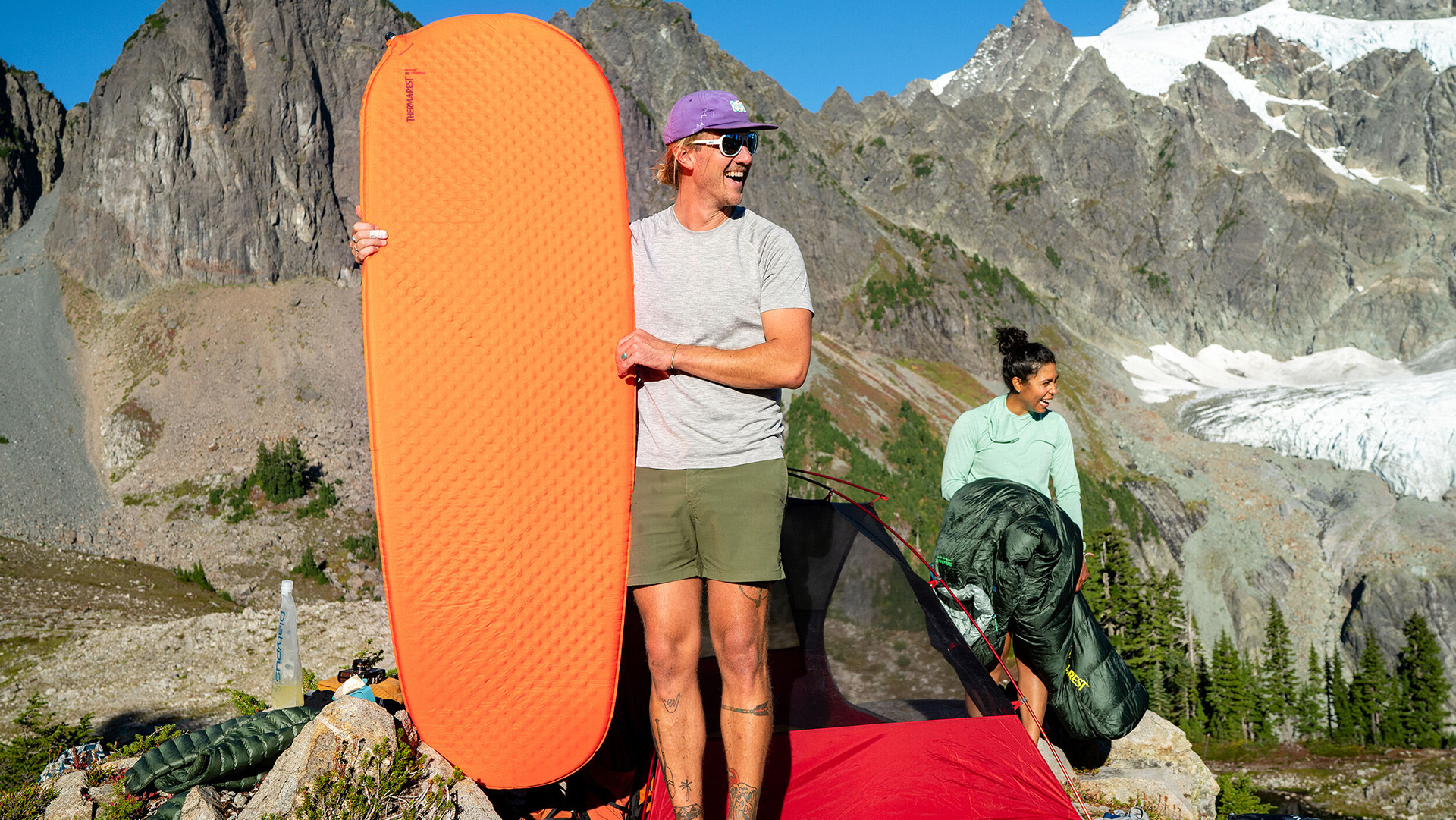
Get all the latest news, reviews, deals and buying guides on gorgeous tech, home and active products from the T3 experts
You are now subscribed
Your newsletter sign-up was successful
What's the best camping mat for you depends on the type of adventures you get up to and what time of year you tend to hit the trails.
For backpackers, we recommend pairing your low-bulk camping mat with one of the best lightweight sleeping bags and best backpacking tents to keep things easy on the shoulders as you trek on uncharted territory.
On the other hand, if you're camping with a car and have the luxury of not carrying around all your gear, you can have a more spacious tent (see also: best tents) and maybe even the best camping bed among your camping gear.
My current favourite is the ever-so-wonderful Therm-a-Rest Neoair Xlite NXT. A true all-rounder, it's lightweight, warm, and quieter than ever. For a more affordable version, check out the Vango Aotrom Thermo Platinum, which has an R-value of 4.2. Rab's Ionosphere 5 Sleeping Mat offers 3-season functionality and is an excellent backpacking option.
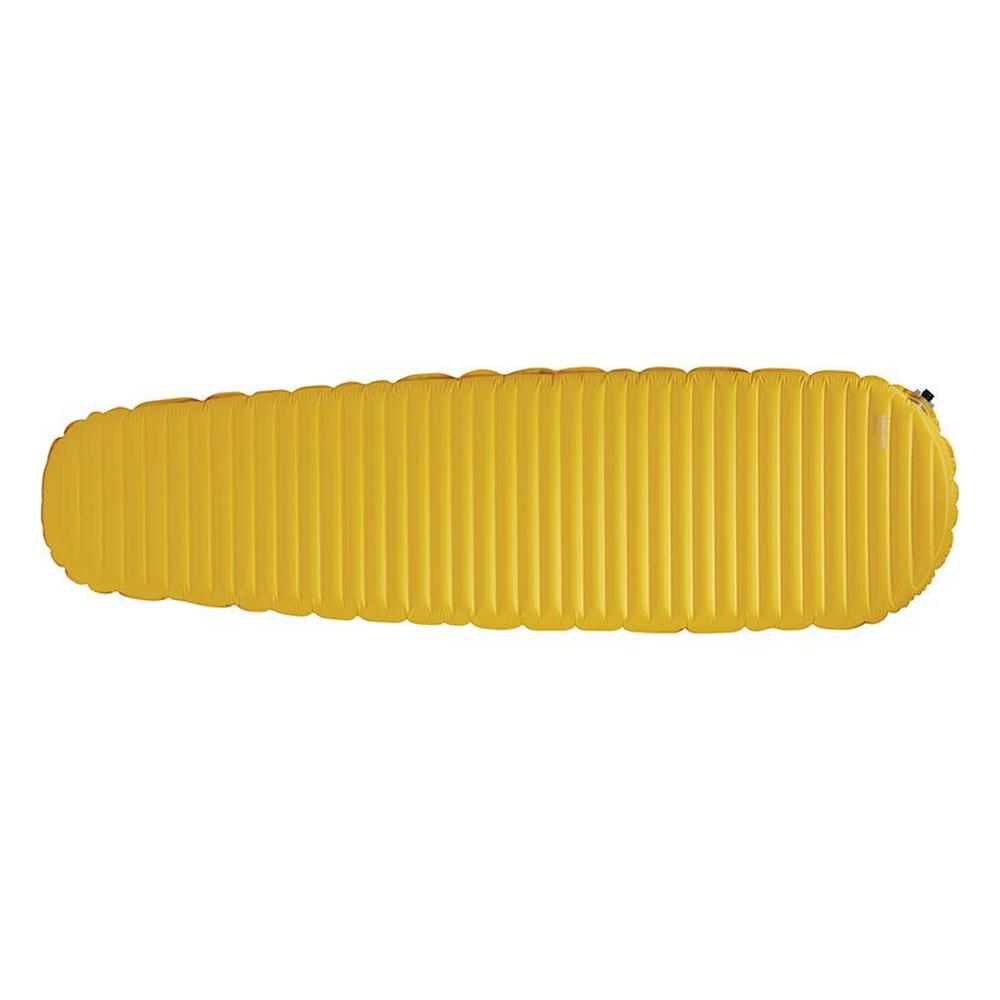
The Therm-a-Rest NeoAir XLite NXT is a camping essential. Lightweight, warm, and quieter than ever, it’s perfect for year-round use. Enjoy a comfortable night's sleep on your next adventure.
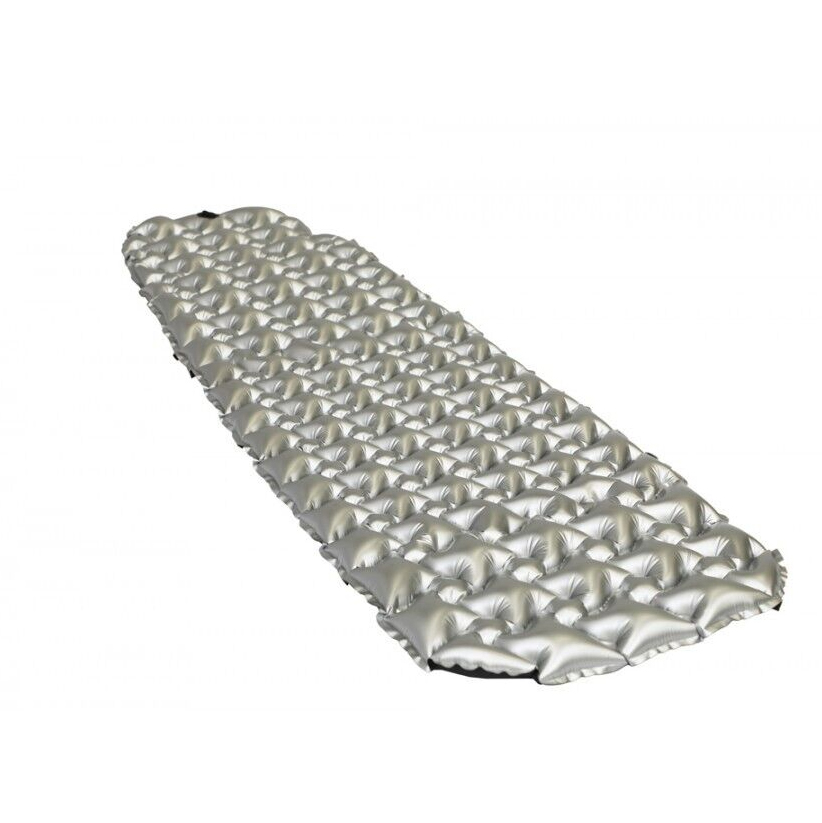
The Vango Aotrom Thermo Platinum is an affordable choice for four-season backpacking. With an R-value of 4.2, it offers great insulation and packs down small for portability, perfect for the cold.
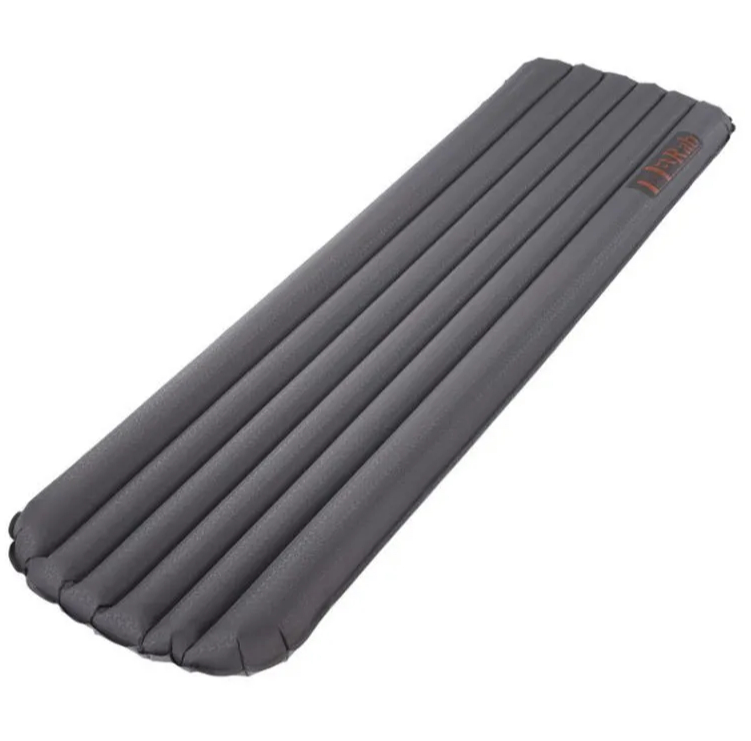
Rab's Ionosphere 5 Sleeping Mat is comfortable, lightweight, and packable – great backpacking option, though ultralighters might consider lighter options. Warm for three-season use, it's made from eco-friendly materials
Best overall
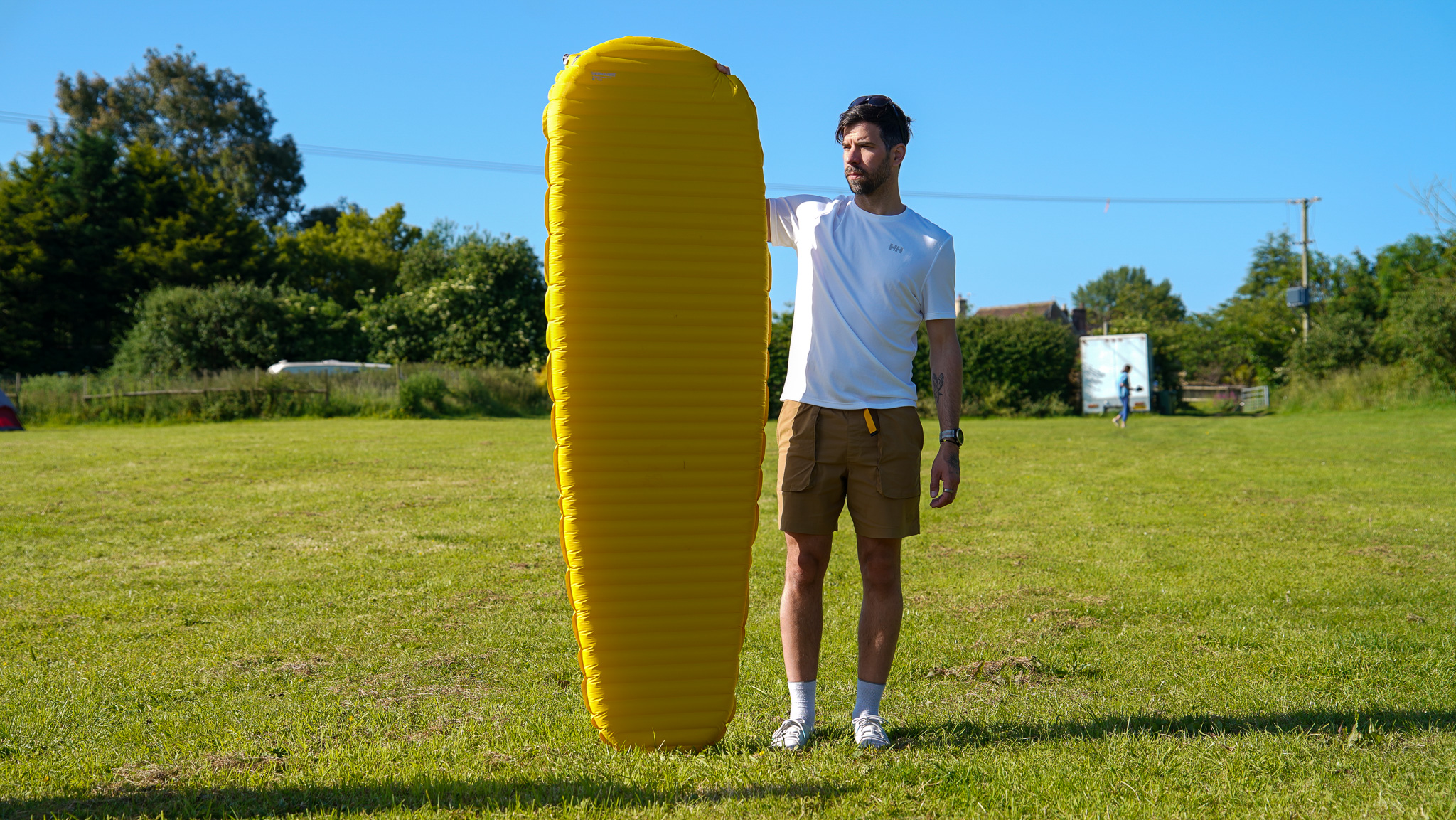

Specifications
Reasons to buy
Reasons to avoid
The Therm-a-Rest NeoAir XLite NXT is a high-tech camping pad designed for premium comfort and performance. Featuring ThermaCapture technology, it has a reflective coating that radiates body heat back to the sleeper, ensuring warmth.
The Triangular Core Matrix, with its stacked layers of triangular baffles, provides a stable surface and minimises heat loss. These baffles are 3 inches thick and six times quieter than previous models, making it a significant upgrade.
The standout feature is the WingLock valve, which allows for quick inflation and deflation, offering three times the airflow of classic valves. This feature also lets you adjust the mat’s firmness while lying on it.
With an R-value of 4.5, the NeoAir XLite NXT is suitable for four-season camping, though it might be overkill for fair-weather campers due to its premium price.
Performance-wise, the pad excels in heat retention and comfort, feeling robust yet lightweight. It’s quieter than its predecessor, reducing noise from movement, which enhances the camping experience. The mat is easy to pack, folding neatly into a slightly longer carry bag than the older model.
It's a top-notch camping accessory for those who camp year-round and seek the best in comfort and technology despite its higher price tag.
Read our full Therm-a-Rest NeoAir XLite NXT review.
Also consider: the mat's predecessor, the Thermarest NeoAir XLite camping mat, weighs 354g and packs down to the size of a water bottle. It offers exceptional comfort and insulation with an R rating of 4.2. It makes more noise than the NXTm but it's durable and quick to inflate, perfect for year-round camping and multi-day hikes.
Best affordable


Specifications
Reasons to buy
Reasons to avoid
The Vango Aotrom Thermo Platinum is a lightweight and impressively warm camping mat suitable for backpackers in cool conditions. It offers a compelling balance of performance and affordability.
Thanks to its thin design, the mat packs down small, making it ideal for backpackers who prioritise warmth without sacrificing portability. With an R-value of 4.2, it provides excellent insulation for four-season camping.
The Aotrom Thermo Platinum's innovative design features a ThermoFlex Lite fabric with an aluminium reflective coating for heat retention, along with air-filled Welded Channels for added comfort. Inflation and deflation are hassle-free, and the mat remains comfortable to sit and sleep on, even for side sleepers.
While it may not be the lightest or warmest option available, its enticing price point and performance make it a solid choice for campers seeking a reliable and toasty sleeping mat.
Read our full Vango Aotrom Thermo Platinum review.
Best 3-season
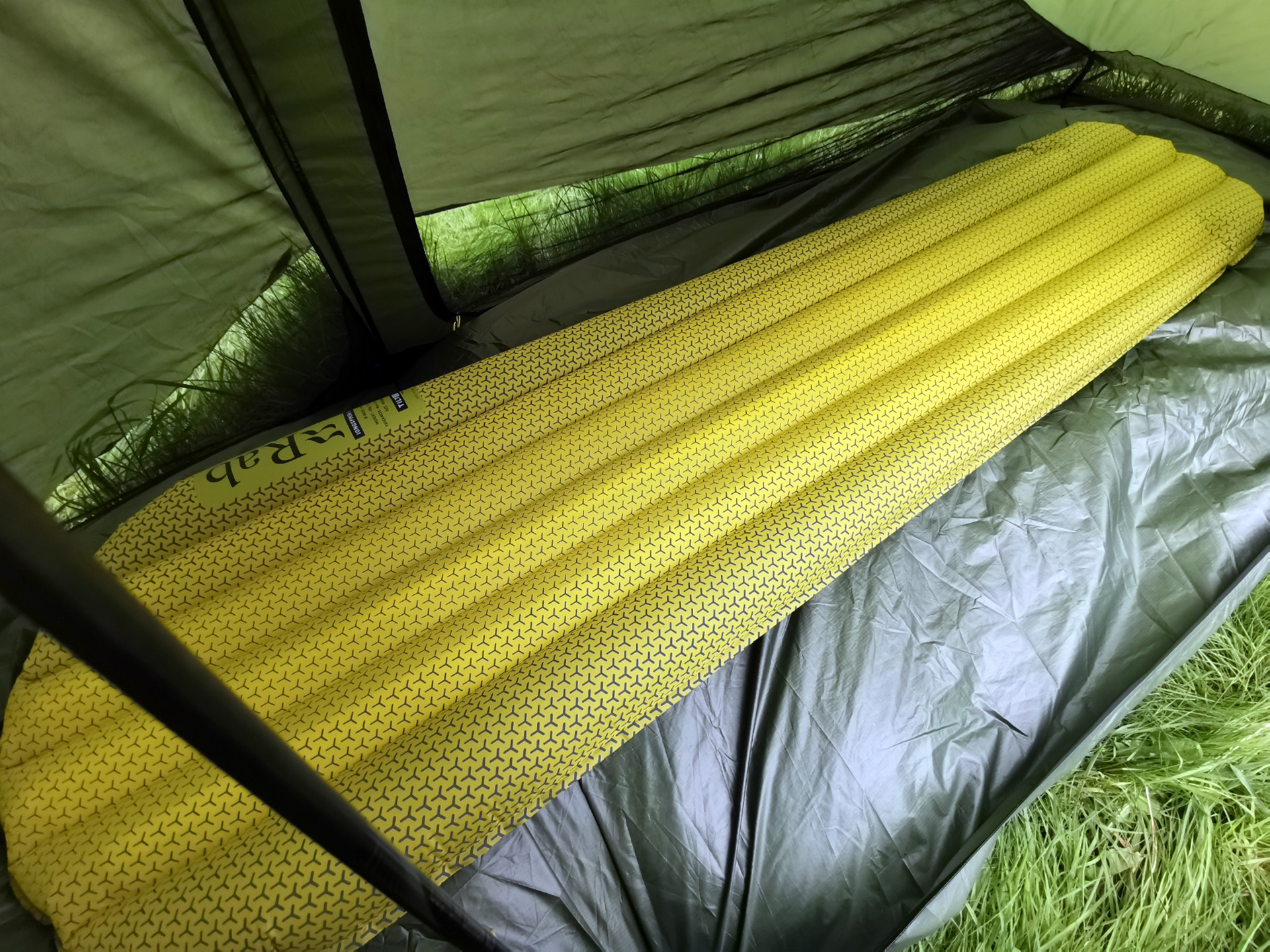

Specifications
Reasons to buy
Reasons to avoid
There’s lots to like about Rab's impressive new entrant to the insulated air mat market. Firstly, Ionosphere 5 Sleeping Mat is very comfortable, even if you’re a side sleeper. It’s also lightweight and packable, which makes this a good choice for weight-conscious backpackers and mountaineers – though dedicated ultralighters could look at even lighter rivals, such as the Thermarest NeoAir XLite Sleeping Pad listed above.
It’s warm enough for full three-season use and even winter camps, provided overnight temperatures don’t fall too far below freezing. It also gets good marks for sustainability since it is made from recycled materials and uses a water-repellent treatment free from environmentally harmful PFCs. We’d recommend going for the standard version over the long and wide version, though, since in our view, the latter’s heftier weight and packed size (as well as the increased cost) aren’t worth the slight increase in comfort.
Read our full Rab Ionosphere 5 Sleeping Mat review.
Best budget
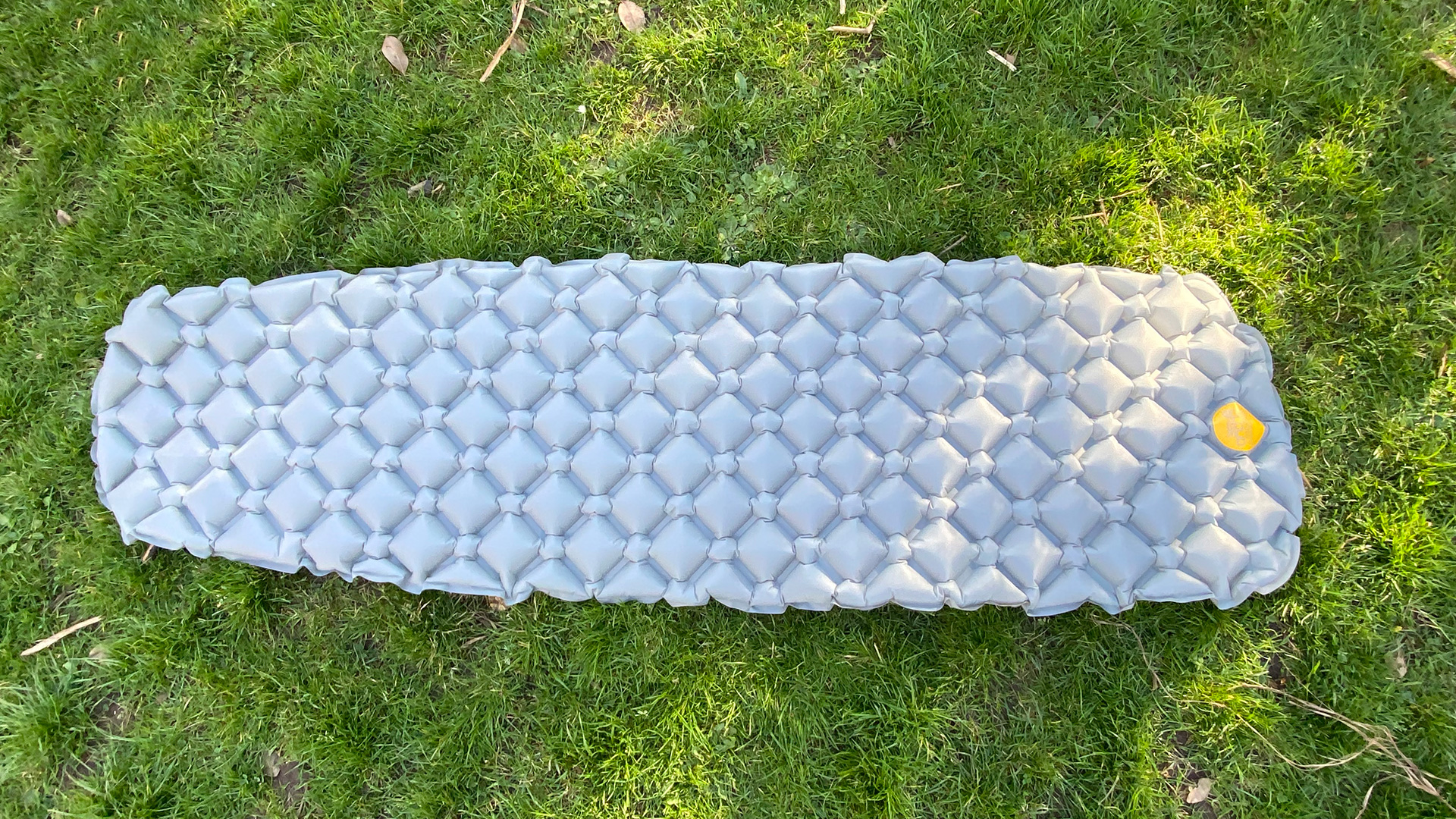

Specifications
Reasons to buy
Reasons to avoid
Next up in our ranking of the best camping mats is the Alpkit Cloud Base camping mat. Don't be fooled by that impressively grooved design; this mat packs down just as small and light as the best lightweight mats around. It's much cheaper than others on this list but punches well above its price tag in terms of performance and comfort. It's not insulated, so for cold-weather adventures, you'll want something different, but for everything else, it's a great choice.
Read our full Alpkit Cloud Base camping mat review.
Best 4-season
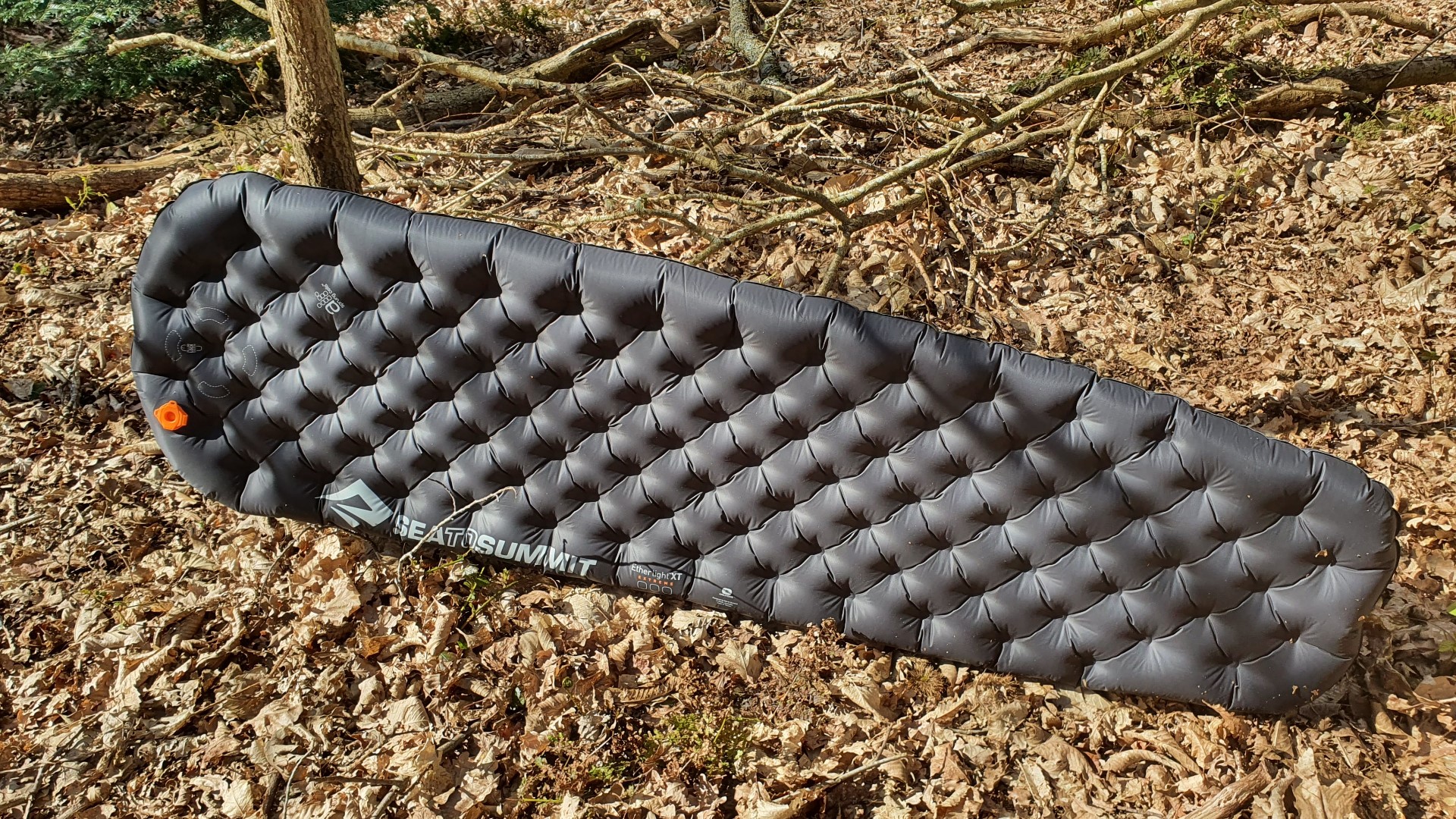

Specifications
Reasons to buy
Reasons to avoid
The Sea To Summit Ether Light XT Extreme is an extremely comfortable, insulated camping mat designed for colder adventures in mind. There are lighter, slimmer, more packable camping mats around, but they’re colder and less comfortable, so you take yer' choice, as the old saying goes.
If you’re really gram-counting in summer or autumn conditions, you could save weight with a lighter mat/mattress option, but in winter, there are not many camping beds or mats out there with this much insulation firepower, potentially letting you run a lighter sleeping bag as a result.
Overall, this is dangerously close to the ideal camping bed for all occasions, from car camping with the family to summer hikes and winter overnight adventures to base camp comfort, this only compromises slightly at the very extremes.
Read our full Sea To Summit Ether Light XT Extreme Sleeping Mat review.
Best mid-range
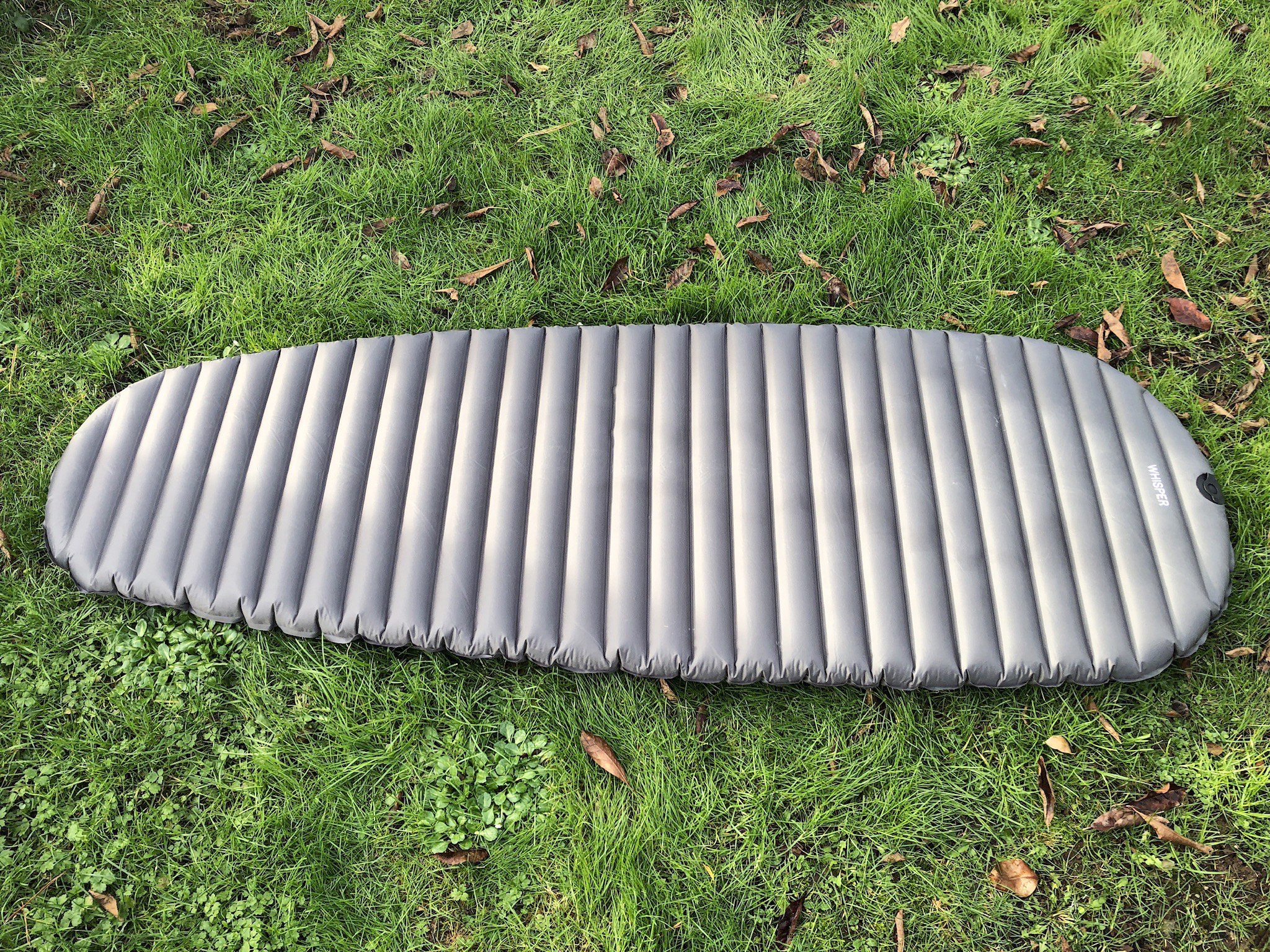

Specifications
Reasons to buy
Reasons to avoid
The Alpkit Whisper insulated 3-season camping mat can be all things to all campers (well, backpackers, at least): light and packable enough to be taken on all but the most minimalist trips while being sufficiently wide and warm to keep you comfortable in the vast majority of conditions you’re ever likely to face in Britain (and beyond) for nine months of the year.
It does have some limitations (the R-Value isn’t massive, for example, for a 3-season sleeping pad), but – particularly for the price point – it is an excellent mat for most backpackers, bikepackers and overnight adventurers of all persuasions. It comes with a pump sack, which doubles up as a stuff sack and is easy to inflate, deflate and carry on the trails.
Read our full Alpkit Whisper Insulated Camping Mat review.
Best for comfort
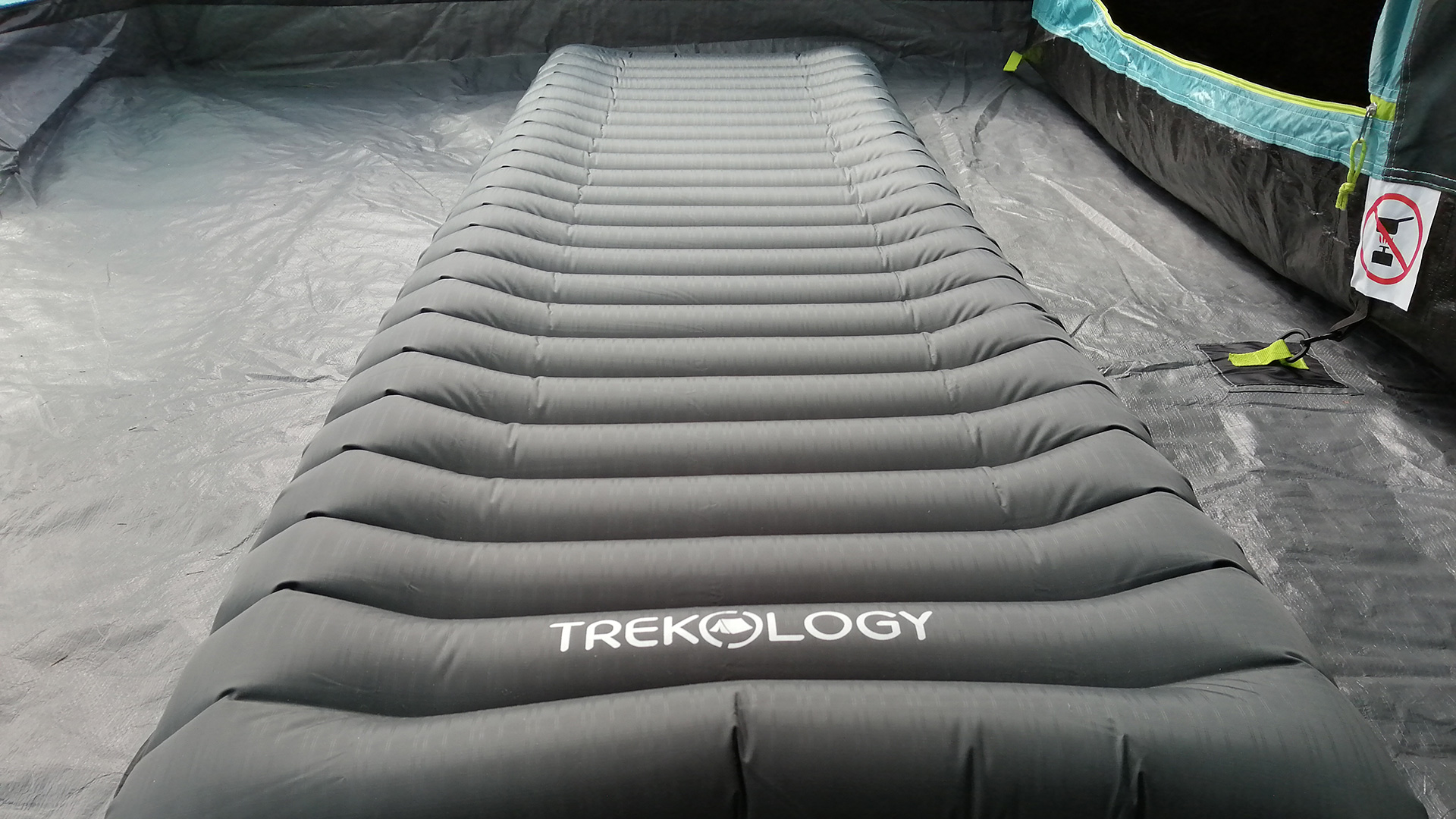

Specifications
Reasons to buy
Reasons to avoid
This sleeping pad is super thick and cushioning when inflated but packs up extremely compact to be slung into a backpack during the day. As well as being thick enough to provide a comfy sleep surface and keep you well away from the bumpy, cold ground, the surface is slightly curved up at the edges to keep you positioned towards the centre and reduce the chance of you rolling off in the night. It's also slightly longer than standard, making it a good choice for taller campers.
The Trekology UL80 is made from 40D nylon with a water-resistant coating, and while it worked perfectly well in our tests, to the touch, it does feel like there might be more robust fabrics if you're willing to spend more. It deflates quickly and packs up easily into the provided carry bag.
It's not the most insulating on our list, but the 1.6R rating will do the job for warmer weather excursions (Trekology says it's suitable for 35.6F or 2C and above). If you're looking for a compact yet cushioning mat that won't break the bank, this is our top pick.
Read our full Trekology UL80 review.
Best for car-camping
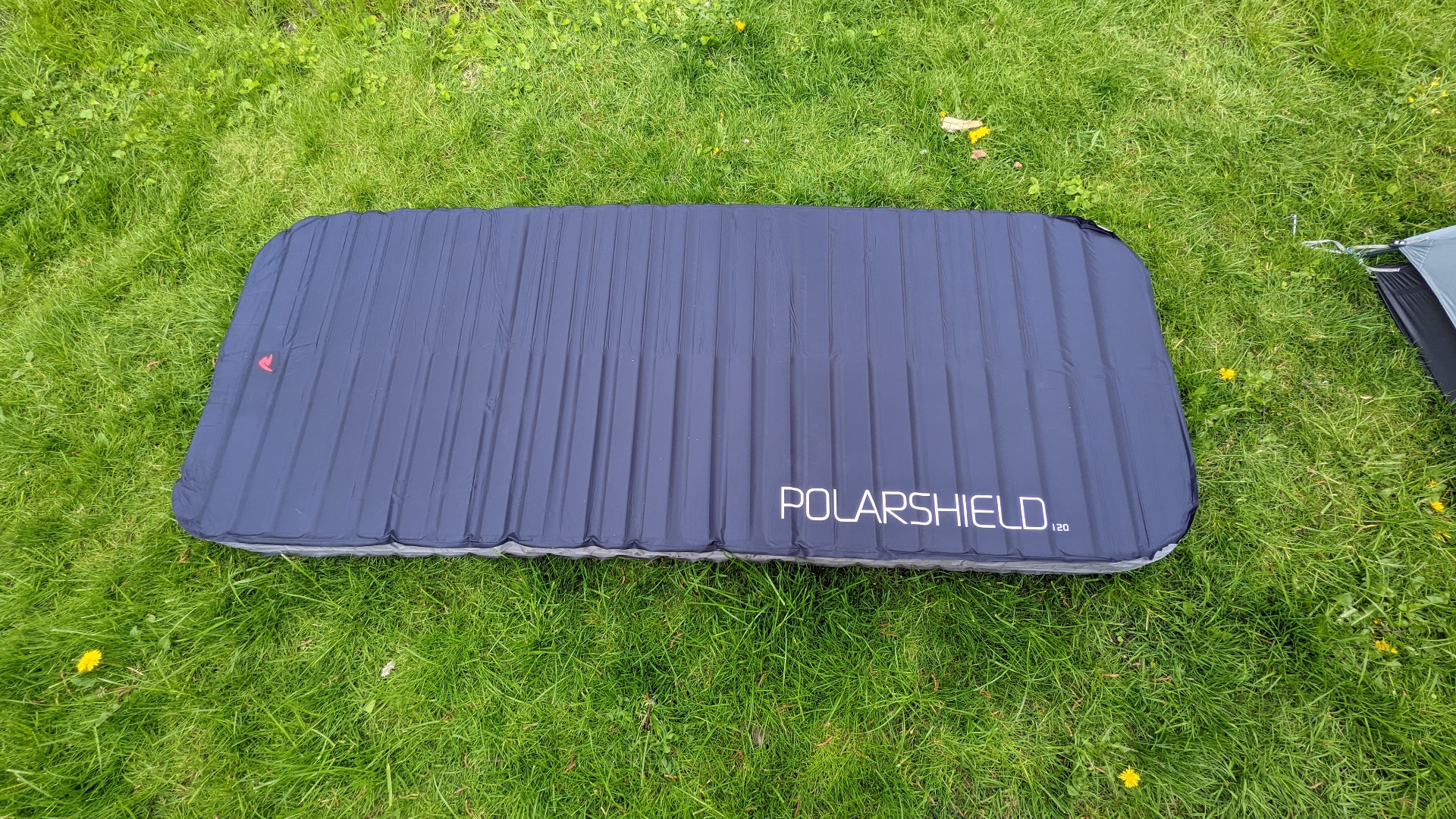

Specifications
Reasons to buy
Reasons to avoid
Not so much a camping mat as a full-size camping mattress, the Robens Polarshield 120 is a super-comfortable option if you're set on a sound night's sleep when you're out car-camping. It's big and warm with plenty of bounce, and compared to similar options, it's surprisingly small and light.
The Polarshield 120 self-inflates, but you'd be best advised to start it off well in advance of bedtime; we found that it'll get to 3/4 inflated fairly quickly, but that vital final quarter takes a lot longer because of the mat's foam decompressing itself. Another thing to know is that it's an absolute pain to get back in its bag in the morning; you'll need to work its compression straps hard and be ready for a long battle of attrition. Overall, though, it's a great mat that provides a home-from-home sleeping experience
Read our full Robens Polarshield 120 Camping Mat review.
Best for mountaineering
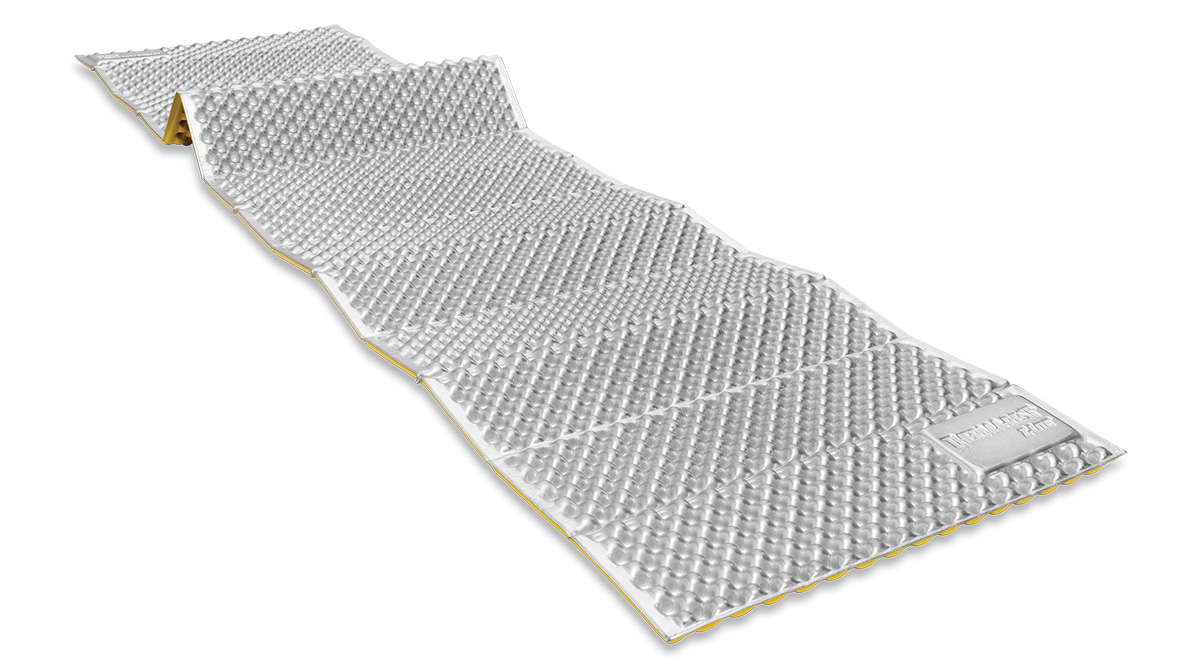

9. Therm-a-Rest Z-Lite Sol
Specifications
Reasons to buy
Reasons to avoid
No camping mat list would be complete without the game-changing Therm-a-Rest Z-Lite. The egg-box style dimpled foam not only gives you the maximum comfort, but also folds down smaller than you’d believe. It is also totally and utterly indestructible, short of dedicated chopping up or incineration, thus ideal for rough-and-ready mountaineering.
Sure, it packs down to something about the size of a house brick (and weighs a reasonable 410g), and might not be feather-bed comfy, but it is keenly priced and deservedly popular. Double it up with a more expensive self-inflating camping mat for the ultimate outdoors snooze.
Reviewer's panel

Matt is T3's outdoor expert and for a strange reason quite drawn to sleeping pads. He's always testing a new one when he goes camping, which happens often both in and out of season. He reviewed a good portion of the mats featured in this guide.

Pat's an avid camper and can often be found in a tent pitched somewhere in the middle of nowhere, working on his latest book or just enjoying the great outdoors. Pat's been using, testing and reviewing camping gear for many years, and is somwhat of an authority in the field.
How to choose the best camping mat for you
Choosing a camping mat involves several crucial factors to ensure comfort and practicality during outdoor adventures. You should consider the mat's insulation level, measured by its R-value, which determines its ability to retain body heat and provide warmth. Select a mat with an appropriate R-value based on the expected weather conditions of your camping destination.
Portability is essential for backpackers and hikers, so opt for lightweight and compact options that can easily fit inside your backpack or attach to the exterior without adding bulk.
Comfort is paramount for a good night's sleep, so choose a mat with sufficient thickness and padding, especially if you're a side sleeper or have specific comfort preferences. Look for durable materials like ripstop nylon or polyester to ensure the mat can withstand rough terrain and frequent use.
Ease of use is also important, so select mats with user-friendly inflation and deflation mechanisms, such as integrated pumps or quick-release valves, to streamline setup and pack-down processes.
How we test the best camping mats
Testing camping mats involves comprehensive evaluations to assess their quality, comfort, and durability. The material and construction are scrutinised for durability against tears, punctures, and abrasions, ensuring resilience to outdoor conditions.
Comfort testing is essential, which involves lying down on the mat to assess cushioning, support, and surface texture, catering to different sleeping preferences. We also evaluate the inflation and deflation mechanisms.
Durability testing involves subjecting the mat to rough terrains, moisture, and repeated use to ensure long-term performance. Field testing further validates the mat's performance in real camping scenarios, assessing comfort, insulation, and durability across diverse conditions and terrains.
FAQ
What’s the best camp bed for tent camping?
T3’s top-rated camping bed is the Quechua Ultim Comfort from Decathlon. This self-inflating hybrid design combines foam and air for excellent comfort and support. It’s quick to set up, durable, and ideal for car camping or family tents. It’s a bit bulky for backpacking, but unbeatable for comfort.
What’s the best inflatable sleeping pad / sleeping pad for camping?
The main purpose of a camping mat is so keep you warm, and it’s second purpose is to create a comfortable night’s sleep. Our current favourite is the Sea to Summit Ether Light XT Insulated Mat. It’s lightweight, packs small, and offers 10 cm of cushioning, making it perfect for side sleepers too. Its Air Sprung Cell design provides even support and insulation across varied temperatures.
What’s the best camping mat for side sleepers?
As a side sleeper, you’ll want to opt for a thicker camp bed to provide extra cushioning for your hips and shoulders. The Rab Ionosphere 5 is ideal for side sleepers thanks to its thick, insulated construction and stable surface. It prevents cold spots under hips and shoulders, keeping you comfortable on uneven ground. It’s compact, durable, and performs well across all seasons.
What’s the best camping mat for couples?
Rather than opting for two single camp mats and putting them side by side, opt four a double camp mat instead, it’ll provide a much comfier sleep. The Vango Shangri-La II 10 Double offers premium comfort for two. This self-inflating mat provides a plush, stable surface with minimal motion transfer. It’s heavy but perfect for car camping, combining luxury sleep comfort with the convenience of an all-in-one setup.
What's an R-value in camping mats?
The R-value tells you how warm the mat will be to sleep in. The main use for a camping mat is to keep you insulated from the ground – which, even in summer, is pretty chilly and can conduct heat away from your body. The higher the R-value, the more insulating it’ll be. Broadly, an R-value below 2.0 is for summer use, 2.0 to 4.0 will suit 3-season use, and if you're heading out in winter, look for 4.0 or above. Read more about the topic here: what's R-value in camping mats?
Which is better: foam vs inflatable camping mats?
Inflatable or self-inflating mats are the best camping mat choice if you're off on a multi-day trip, as they're typically much more comfortable when inflated and pack down smaller when not in use – you'll be able to pop them inside your hiking backpack rather than strapping them to the outside. There is, however, always a slight risk of puncture (choosing a pricier model is always a good idea here).
Choosing inflatable camping mats can be a complex task, as the various materials and construction make a massive difference to the insulation they dish out – yes, even from two mats that look very similar. As usual, the cheaper the mat, the less insulation you'll probably get, and be sure to check the R-value.
Simple foam camping mats shouldn't be dismissed entirely, though. They're both cheaper and more robust but less comfortable than their inflated brethren. In fact, they're pretty much indestructible, so they are ideal for festival use or trekking in particularly rugged terrain that would slice an inflatable to shreds. While bulky, they're very lightweight and unbothered by getting wet, too.
What's the difference between airbeds and sleeping mats?
The airbed vs sleeping mat debate rests firmly on personal choice, and where you plan to use them. Airbeds can be super comfortable and thanks to their height, you're further removed from the cold ground. They are heavier and bulkier, though, which makes them less appealing to backpacking, where thin camping mats really shine, thanks to their small pack size and lower weight. Read more on the topic here: airbed vs camp bed vs sleep mat.
Get all the latest news, reviews, deals and buying guides on gorgeous tech, home and active products from the T3 experts

Matt Kollat is a journalist and content creator for T3.com and T3 Magazine, where he works as Active Editor. His areas of expertise include wearables, drones, action cameras, fitness equipment, nutrition and outdoor gear. He joined T3 in 2019.
His work has also appeared on TechRadar and Fit&Well, and he has collaborated with creators such as Garage Gym Reviews. Matt has served as a judge for multiple industry awards, including the ESSNAwards. When he isn’t running, cycling or testing new kit, he’s usually roaming the countryside with a camera or experimenting with new audio and video gear.
- Pat KinsellaFreelance outdoor writer